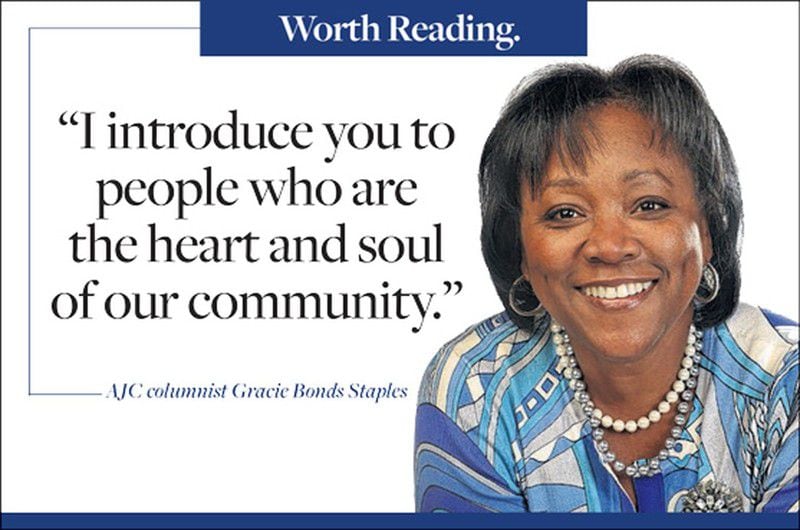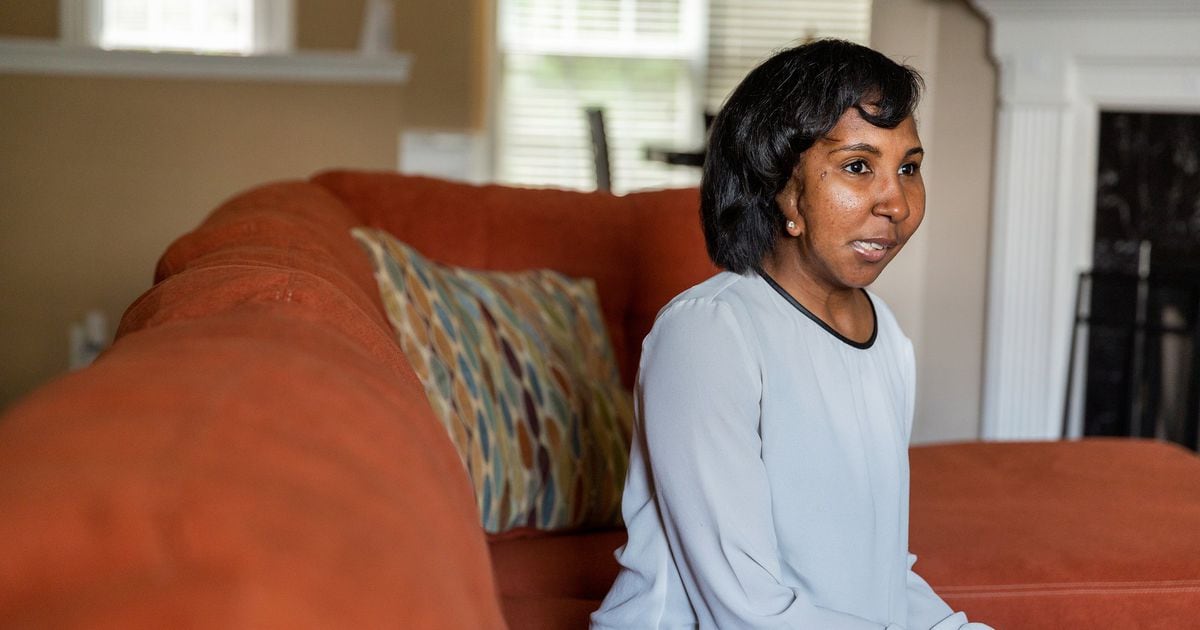Ten years ago, Georgia was 49th in the country in funding its developmentally disabled residents. Today, it’s 45th.
Some people didn’t receive support until a parent or caregiver died.
If you don’t have a loved one with a disability, this may not be an issue you’ve given much thought to. But consider for a moment how you would feel if an exemption stood between your son or daughter, or another close relative, and badly needed home or community services, such as help getting in and out of a wheelchair or bed, or employment. In other words, what if an exemption stood between them and their ability to live independently?
unimaginable?
The Georgia Council on Developmental Disabilities recently launched Telling Our Stories: The Real Lives of People with Developmental Disabilities in Georgia, so you never have to tell your story again.
“These are real stories about real people with everyday issues around housing, education, employment and more,” said GCDD Executive Director Eric Jacobson.
Related | For people with developmental disabilities, a picture is worth a thousand words
These stories document the lives of Georgians living in all 56 Georgia Senatorial Districts and are easily accessible through the GCDD website (gcdd.org). These stories are funny, heartwarming, and challenging. They are diverse and told from the perspectives of people with disabilities and their families who openly talk about everything from job opportunities to lack of transportation to waiting lists for Medicaid waivers. These stories are needed, especially as we advocate for those who cannot or do not know how to advocate for themselves.
Jacobson said the way the waiver program works, facilities and nursing homes are required to be paid by Medicaid, but home and community-based services are considered optional services.

He said states would have to get waivers from the federal government to provide these services. States can put a cap on the number of providers, but it really depends on how much money Georgia is willing to put up, because whatever the state puts up, the federal government will match.
To accelerate the project’s impact, more stories are being added to the GCDD website, including podcasts, short films and interactive tools.
GCDD decided it needed to develop this project in 2017 after struggling for years to get state legislators to recognize and empathize with the needs of their constituents.
“When we had Disability Day at the Capitol, that was our biggest challenge,” Jacobson said.
The department put out a request for proposals to create the storytelling project, and last year it contracted with L’Arche, an international alliance that works to create and expand homes, programs and support networks for people with intellectual disabilities, to collect stories from people in each legislative district.
Jacobson quickly realized how effective these stories were and decided to not only expand the collection of stories, but also the way they were disseminated, resulting in a website and podcast launching on October 30th, with a film currently in the works.
“Without the story, there is no data, and without the data, there is no story,” Jacobson said. “This is exactly what we in the advocacy world have to deal with every day.”
It’s nearly impossible to gain support from the legislature if you can’t relate to the human story of “this is who I am and this is what I need.” That’s not to say the body didn’t have its champions.
Jacobson said the names of Georgia Sen. Jack Hill, Rep. Katie Dempsey, Rep. Mary Margaret Oliver and several others come to mind who have worked hard to ensure people with disabilities have access to the services and supports they need.
RELATED | Bobby Dodd and AADD merge to improve services for people with developmental disabilities
To date, 82 people with disabilities have agreed to share their stories with us. Meet Nick Papadopoulos, 40, who lives in a care home in Royston and has cerebral palsy and severe arthritis, and Lasheela Dopson, 28, of Decatur, who has a craniofacial disorder and multiple medical conditions.

Both are on a long waiting list for Medicaid waivers. Papadopoulos wants to live on his own. Dopson needs help keeping her that way.
Judy Fitzgerald is director of the Georgia Department of Behavioral Health and Developmental Disabilities, the state agency that administers Medicaid waivers for people with intellectual and developmental disabilities.
She said about 13,000 people in Georgia receive waivers, and in the past three years her agency has added more than 2,200 waiver recipients, ensuring everyone in the state can live in their communities with services tailored to their needs.
Fitzgerald said what GCDD calls a waiting list is essentially a planning list that her team monitors to identify people who may need waivers in the future.

Credit: Atlanta Journal-Constitution
Credit: Atlanta Journal-Constitution
When an individual’s needs become urgent, the Department of Behavioral Health and Developmental Disabilities works to enroll them in waiver services, Fitzgerald said.In addition to those with waivers, about 2,000 people on the plan’s list receive family assistance payments that can be used to cover the costs of everything from medical equipment to clothing to respite services.
“We hear directly from families how important this resource is,” she said.
But Jacobson said Georgia still has a lot of work to do.
“We’ve been working on this issue for 17 years, and we haven’t made much progress as a state,” Jacobson said. “When I think about independence, I think about economic independence, community participation and integration. If people don’t have the support they need to get out of bed and to work, it’s not realistic to achieve those things. Without these exemptions, most people wouldn’t be able to live an independent life.”
If you think this is a money saver, think again.
Data shows the cost of a waiver is significantly less than the cost of placing someone in an institution or nursing home.
State officials know this.
“This is something we’re going to elevate as a priority,” Jacobson said.
That’s why storytelling projects are so important.
Come January, Jacobson’s team will ensure it’s in the hands of Parliament in the hope that they can flip the switch so that Parliament can finally get to work reducing those horrific waiting lists.
It’s time.
Gracie can be found on Facebook (www.facebook.com/graciestaplesajc/) and Twitter (Follow) or email [email protected].

